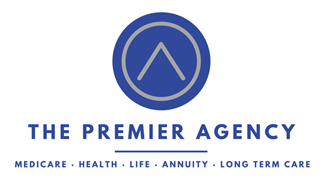Becoming a certified dual special needs broker in Arizona requires specific steps and qualifications. This guide outlines the process, focusing on education requirements, licensing procedures, and certification for dual special needs plans. By following these steps, you’ll gain the knowledge and credentials needed to serve Medicare beneficiaries with special needs in Arizona. Whether you’re new to insurance or looking to specialize, this guide will help you navigate the path to becoming a certified dual special needs broker in the state.
Key Takeaways
- Dual special needs brokers assist clients eligible for both Medicare and Medicaid in Arizona
- Certification requires completing education, passing exams, and meeting licensing requirements
- Brokers must fulfill continuing education and stay current with industry changes to maintain certification
- Ethical standards and client-centered service are crucial for dual special needs brokers
- Professional growth opportunities help brokers enhance their skills and better serve clients
Understanding the Role of a Dual Special Needs Broker

A dual special needs broker in Arizona assists clients eligible for both Medicare and Medicaid. This role requires specialized knowledge of dual special needs plans, skills in serving dual-eligible clients, and adherence to ethical policies. Brokers must understand Medicare Parts A and B, work with physicians, and apply specific methodologies to support clients effectively.
Defining Dual Special Needs Plans in Arizona
Dual Special Needs Plans in Arizona cater to individuals eligible for both Medicare and Medicaid. These plans provide comprehensive coverage, including prescription drugs, hospital care, and nursing services. Brokers must have central information about these plans to offer leadership and guidance to clients, drawing on their experience to navigate the complex healthcare landscape.
The Value of Serving Dual-Eligible Clients
Serving dual-eligible clients offers significant value for certified dual special needs brokers in Arizona. These professionals play a crucial role in helping individuals navigate the complex landscape of Medicare and Medicaid, ensuring they receive appropriate health coverage and primary care services. Brokers with expertise in dual special needs plans can effectively assist clients with diverse needs, including those on the autism spectrum, by connecting them with comprehensive resources and human resources support. Their specialized knowledge allows them to optimize coverage and improve access to essential healthcare services for this unique population.
- Assist clients in navigating Medicare and Medicaid
- Provide expertise on dual special needs plans
- Connect clients with comprehensive healthcare resources
- Optimize coverage for diverse needs, including autism spectrum
- Improve access to essential healthcare services
Ethical Responsibilities of a Broker
Dual special needs brokers in Arizona must uphold ethical standards to effectively serve their clients. They must prioritize client interests, ensuring cost-effective Medicare Advantage plans that meet individual needs, including nutrition support for refugees. Brokers must also maintain confidentiality, provide accurate information, and avoid conflicts of interest to build trust and deliver ethical, client-centered service.
Meeting the Basic Requirements in Arizona

Becoming a certified dual special needs broker in Arizona requires meeting specific basic requirements. These include verifying eligibility, completing background checks, and gathering essential documentation. Aspiring brokers must understand how chronic conditions are handled and preferred provider organizations. The exam and individualized education program knowledge are crucial for success in this field.
Verifying Eligibility to Become a Broker
To become a certified dual special needs broker in Arizona, individuals must verify their eligibility through the Arizona Health Care Cost Containment System. This process involves meeting specific requirements, such as having a valid health insurance license, completing relevant education or training in fields like science or healthcare, and demonstrating a minimum income level. Aspiring brokers should also familiarize themselves with the state’s regulations and policies regarding dual special needs plans to ensure they meet all necessary qualifications.
Completing Background Checks Successfully
Aspiring dual special needs brokers in Arizona must successfully complete background checks as part of the certification process. These checks verify the individual’s history, ensuring they have no record of fraud or misconduct in health care. The process may include reviewing dental records, technology usage, and proficiency in Spanish to ensure comprehensive service to diverse populations.
Gathering Essential Documentation
Aspiring dual special needs brokers in Arizona must gather essential documentation to meet certification requirements. This includes proof of completion for CMS-approved training programs, internship records, and patient care experience. Brokers should also compile documentation of their caregiver experience and any relevant learning certifications to strengthen their application.
Completing Necessary Education and Training

Completing the necessary education and training is a crucial step for aspiring dual special needs brokers in Arizona. This section covers enrolling in approved pre-licensing courses, key topics in broker education, and strategies for excelling in studies. The training includes language development, formulary understanding, and parent engagement, with courses often available in Phoenix.
Enrolling in Approved Pre-Licensing Courses
Aspiring dual special needs brokers in Arizona must enroll in approved pre-licensing courses to obtain their license. These courses cover essential topics such as Medicare, Medicaid, and dual eligibility. Prospective brokers should expect to pay a fee for these courses, which can vary depending on the provider and course duration.
Key Topics Covered in Broker Education
Broker education for dual special needs certification in Arizona covers essential topics to ensure comprehensive knowledge. These include Medicare and Medicaid policies, dual eligibility criteria, and ethical practices in client interactions. Certified teachers often lead courses on healthcare systems, complaint handling procedures, and effective communication with diverse populations. The curriculum emphasizes the importance of understanding complex health plans and maintaining ethical standards in all broker activities.
Strategies for Excelling in Your Studies
Aspiring dual special needs brokers in Arizona can excel in their studies by creating a structured learning environment and focusing on accessibility. They should prioritize special education topics, regularly evaluate their progress, and seek additional medical resources to enhance their understanding. Effective strategies include setting clear goals, utilizing practice exams, and engaging with experienced professionals in the field to gain practical insights.
Obtaining Your Arizona Insurance License

Obtaining an Arizona insurance license is a crucial step for aspiring dual special needs brokers. This process involves scheduling and preparing for the state exam, understanding tips for passing the licensing exam, submitting the license application, and navigating licensing fees and processes. Aspiring brokers should be prepared to address topics like dyslexia, heart failure, and insurance policies in their exam preparation.
Scheduling and Preparing for the State Exam
Aspiring dual special needs brokers in Arizona must schedule and prepare for the state insurance exam. Candidates should select an exam date that allows sufficient study time and choose a testing location within their zip code for convenience. Preparation involves reviewing key concepts related to special needs communities, preschool services, and certification requirements. Thorough study of these topics will help candidates feel confident and well-prepared on exam day.
Tips for Passing the Insurance Licensing Exam
To pass the insurance licensing exam, aspiring dual special needs brokers in Arizona should focus on comprehensive preparation. They can benefit from utilizing study materials provided by the Arizona Department of Education and enrolling in review courses offered online and offline. Candidates should also complete student teaching requirements and obtain fingerprint clearance as part of their preparation. Familiarity with education policies and special needs care is crucial for success in the exam.
Submitting Your License Application
Submitting a license application is a crucial step for aspiring dual special needs brokers in Arizona. Candidates must complete the application form accurately, including details about their recruitment process, program participation, and employment history. The application should also address any disability-related accommodations needed and demonstrate knowledge of health maintenance organizations. Applicants must submit the form to the Arizona Department of Insurance along with required documentation and fees.
Understanding Licensing Fees and Processes
Understanding licensing fees and processes is crucial for aspiring dual special needs brokers in Arizona. The state requires applicants to pay fees for their initial license, which covers SNPs and mental health services. Aspiring brokers should check the Arizona Department of Insurance website for current fee structures and payment methods. Universities often offer guidance on navigating these processes, ensuring English language proficiency for effective communication with clients:
Achieving Certification for Dual Special Needs Plans

Achieving certification for dual special needs plans in Arizona involves meeting specific standards and completing required training. This section covers Medicare and Medicaid certification requirements, carrier-specific training programs, registering with D-SNP insurance providers, and navigating the AHIP certification process. These steps are essential for aspiring dual special needs brokers to gain the necessary qualifications and expertise.
Meeting Medicare and Medicaid Certification Standards
Aspiring dual special needs brokers in Arizona must meet Medicare and Medicaid certification standards to serve their clients effectively. These standards require brokers to complete specific training programs that cover both Medicare and Medicaid regulations, as well as the unique needs of dual-eligible individuals. Brokers must demonstrate a thorough understanding of the state’s healthcare system, including managed care organizations and long-term care services, to ensure they can provide comprehensive guidance to their clients.
Completing Carrier-Specific Training Programs
Aspiring dual special needs brokers in Arizona must complete carrier-specific training programs to gain certification. These programs cover the unique features and requirements of each insurance carrier’s dual special needs plans. Brokers learn about plan benefits, enrollment processes, and compliance standards specific to each carrier. The training ensures brokers can effectively represent and explain different carriers’ plans to clients:
- Learn carrier-specific plan benefits
- Understand enrollment procedures
- Study compliance requirements
- Practice explaining plans to clients
- Complete assessments for each carrier
Registering With D-SNP Insurance Providers
Aspiring dual special needs brokers in Arizona must register with D-SNP insurance providers to offer their services. This process involves submitting an application to each provider, demonstrating compliance with their requirements, and completing any additional training specific to their plans. Brokers should prepare to provide documentation of their certification, license, and relevant experience when registering. The registration process may vary slightly between providers, but typically includes the following steps:
Navigating the AHIP Certification Process
Aspiring dual special needs brokers in Arizona must complete the AHIP (America’s Health Insurance Plans) certification process. This industry-standard certification covers Medicare regulations, marketing guidelines, and compliance requirements. Brokers must pass the AHIP exam with a score of 90% or higher to obtain certification. The process typically involves studying AHIP-provided materials, taking practice tests, and scheduling the final exam:
- Review AHIP study materials
- Complete practice exams
- Schedule and take final certification exam
- Achieve a passing score of 90% or higher
- Maintain certification through annual renewal
Maintaining Your License and Certifications

Maintaining a license and certifications as a dual special needs broker in Arizona requires ongoing effort. This section covers fulfilling continuing education requirements, staying current with industry changes, renewing licenses and certifications on time, and pursuing professional growth opportunities. These steps ensure brokers remain qualified and up-to-date in their field.
Fulfilling Arizona’s Continuing Education Requirements
Dual special needs brokers in Arizona must fulfill continuing education requirements to maintain their license and certifications. The state mandates a specific number of hours of approved coursework every renewal period. Brokers must complete courses covering topics such as Medicare updates, Medicaid policies, and ethical practices. The Arizona Department of Insurance provides a list of approved continuing education providers and courses:
Staying Current With Industry Changes
Dual special needs brokers in Arizona must stay current with industry changes to maintain their effectiveness and compliance. They should regularly review updates from the Centers for Medicare & Medicaid Services and the Arizona Health Care Cost Containment System. Brokers can subscribe to industry newsletters, attend webinars, and participate in professional associations to stay informed about new regulations, plan changes, and best practices in serving dual-eligible clients.
Timely Renewal of Licenses and Certifications
Dual special needs brokers in Arizona must renew their licenses and certifications on time to maintain their legal status. The Arizona Department of Insurance requires brokers to renew their licenses every two years, typically on their birth month. Brokers should set reminders and start the renewal process early to avoid lapses in their credentials. They must also ensure all continuing education requirements are met before submitting their renewal application.
Opportunities for Professional Growth
Dual special needs brokers in Arizona can pursue professional growth opportunities to enhance their skills and knowledge. They can attend industry conferences, join professional associations, or pursue advanced certifications in specialized areas of Medicare and Medicaid. These activities help brokers stay competitive, expand their expertise, and better serve their clients’ evolving needs.
Conclusion
Becoming a certified dual special needs broker in Arizona requires dedication, comprehensive training, and adherence to strict ethical standards. The process involves meeting basic requirements, completing necessary education, obtaining an insurance license, and achieving certification for dual special needs plans. Maintaining licensure and certifications demands ongoing commitment to continuing education and staying current with industry changes. By following this comprehensive guide, aspiring brokers can embark on a rewarding career assisting dual-eligible clients in navigating the complex healthcare landscape, ultimately improving access to essential services for this unique population.


Recent Comments